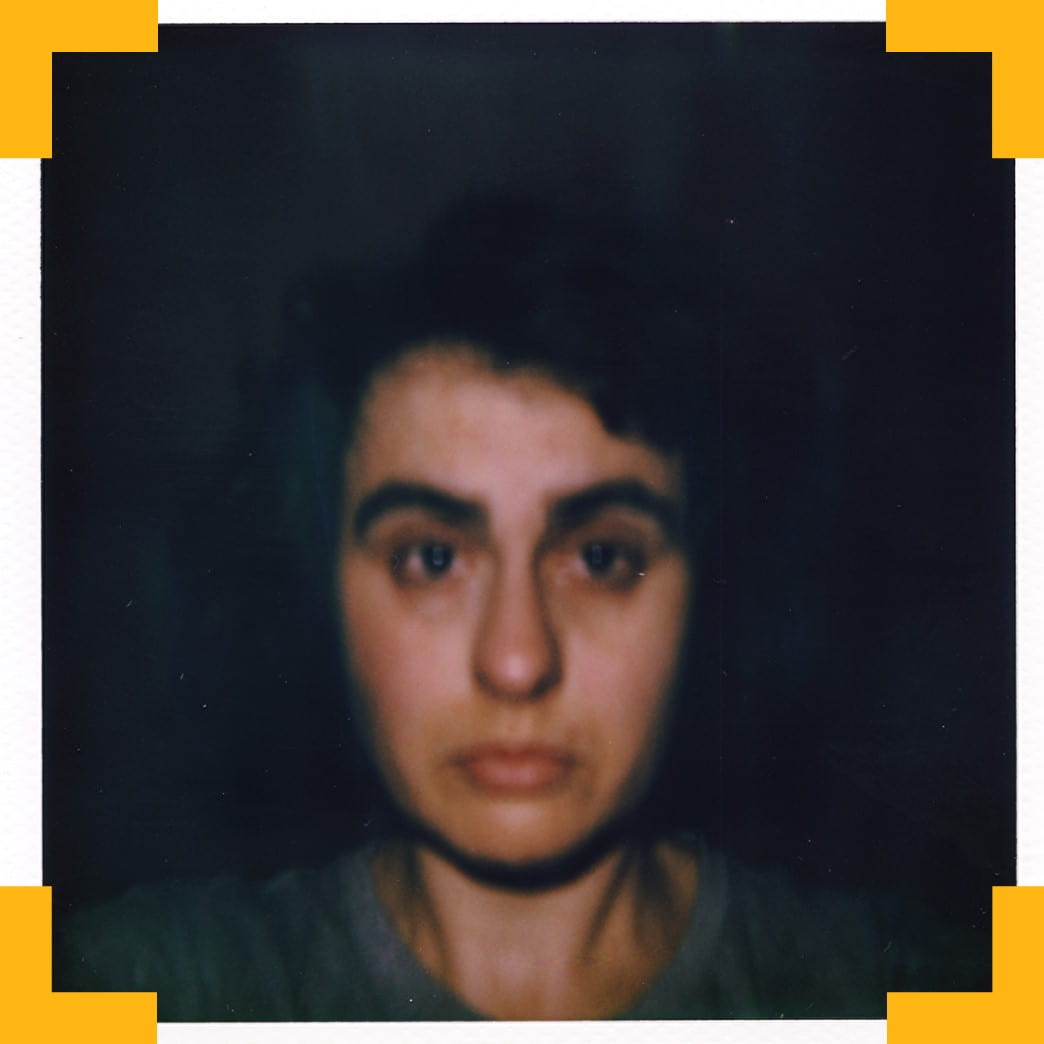With a Human Mask
By Mareike Günsche, Photographer, Senior Lecturer, and Brigstow researcher.

When I cycled through London and I was able to recognise beauty for the first time again after a very long dark time it was so special. I could see it and I was aware that I hadn’t see anything beautiful for months, that I couldn’t see anything positive, nothing good. It was as if I was blind to all positive things and suddenly I could see again. I will never forget this moment and the happiness I felt. Being able to feel happiness is the best thing ever.
Mental health is something we don’t talk about enough. And even though I am open about my own depression it is still a big step to submit this series. I am a freelance photographer and I don’t want to carry the label “depression” in front of me. It is one part of my identity but I am way more.
Picking up the camera helped me in very difficult situations in my life and when I was at the darkest place I decided to start a self-portrait series. I wanted to document what I couldn’t put in words very often. I chose a Polaroid camera because I didn’t have the energy to edit, download, to work with the images. To pick up the camera and press a button was all I could do. And this also reflects how I felt. I wasn’t in control of my life, I wasn’t able to deal with a lot. I could only do baby steps, I could only press a button. Adjusting shutter speed, aperture, and focus: all these was out of discussion for me at that point in time. And the pictures mirror how I felt: blurry, out of focus, like under a thick layer of glass and water, melting away.
Finding a way out of the darkest place took time. And a lot of support of people who were able to be there when I was overtaken by fear and didn’t see the path any more. People that held hope for me when I couldn’t. I am in a way better place today, also thanks to having access to therapy and medication. Being able to feel happiness is the best thing ever.
Mareike Günsche is a photographer and educator with a special interest in social change and photography’s ability to empower. Mareike uses participatory photography as a tool for empowerment with a focus on human rights, gender equality, and social change and is driven by the desire to use participatory photography to create visibility for a variety of perspectives.
Mareike is part of the research team for Brigstow Funded Experimental Partnership: We Are Still Here: Stories from the HIV & AIDS Community .

